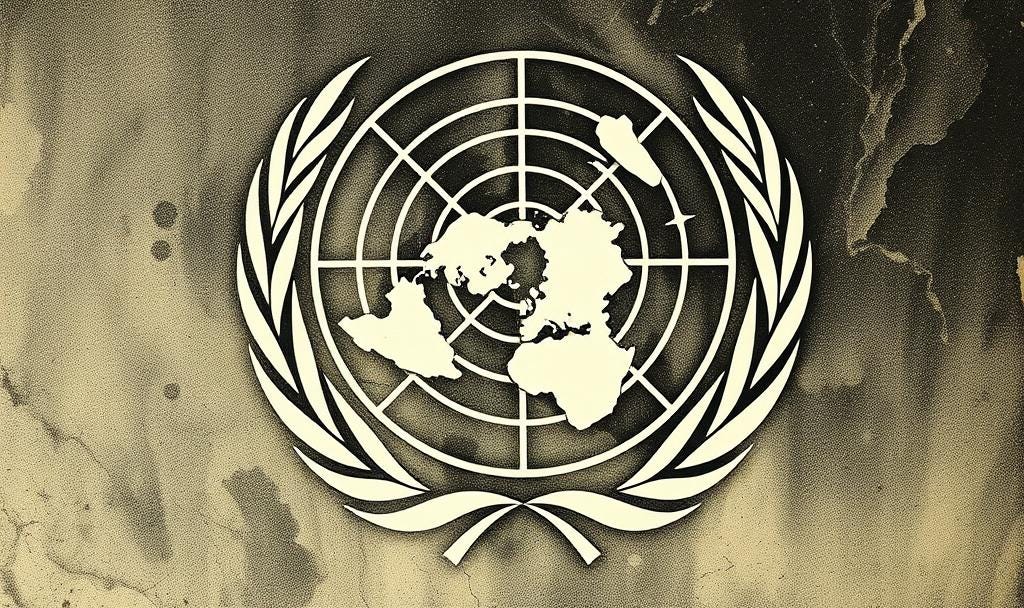One of the most seductive inventions of the twentieth century was the language of rights. Across constitutions and charters, from the United Nations’ Universal Declaration to the African Charter on Human and Peoples’ Rights, rights proliferated like promises on paper. But the allure of rights-talk hides a problem at its core: many of the rights we celebrate are empty rights—proclamations without stipulated duty-bearers. These rights were aspirations without obligations.
An empty right is a right without a correlative duty. If I hold a claim-right, someone else must bear a duty to me; otherwise the right is a phantom. Yet so much of modern rights discourse revels in the announcement of rights without ever identifying who is responsible for fulfilling them.
Consider the Universal Declaration of Human Rights (1948), a document that rightly became a beacon of postwar moral ambition. Its social and economic provisions, however, are filled with empty rights. Article 23(1) declares: “Everyone has the right to work, to free choice of employment, to just and favourable conditions of work…” But who, exactly, is required to provide a job? The document never says. Article 24 insists “Everyone has the right to rest and leisure, including reasonable limitation of working hours and periodic holidays with pay.” But which employer, which state, is bound to honor this? Article 25(1) soars higher still: “Everyone has the right to a standard of living adequate for health and well-being, including food, clothing, housing and medical care…” Lofty, yes—but a right to housing is meaningless unless we can say who must build or provide the house.
The problem is not confined to the UDHR. The International Covenant on Economic, Social and Cultural Rights (1966) entrenches a similar vagueness. It promises rights to work (Art. 6), to just conditions (Art. 7), to housing and food (Art. 11), and to “the highest attainable standard of physical and mental health” (Art. 12). But these rights are hedged with the language of “progressive realization” and “maximum available resources,” which is another way of saying that states have no immediate duties, only vague aspirations.
Other treaties repeat the pattern. The African Charter on Human and Peoples’ Rights (1981) announces that “All peoples shall have the right to their economic, social and cultural development.” Who owes the corresponding duty? States? Corporations? The “international community”? The text does not say. The ASEAN Human Rights Declaration (2012) asserts the right to “a safe, clean and sustainable environment,” but avoids identifying who bears the duty to provide it—states, polluters, or perhaps no one at all.
Even national constitutions have trafficked in this rhetoric. The Directive Principles of State Policy in India’s Constitution guarantee rights to work, education, and livelihood—yet they are deliberately non-justiciable, unenforceable in court. The Soviet Constitution of 1936 boasted of rights to housing, rest, leisure, and health, but without mechanisms or duty-bearers, such rights were propaganda rather than practice.
The Empty Right to Work
And nowhere was the language of empty rights deployed more cynically than in the Soviet Union. The 1936 Stalin Constitution loudly guaranteed the “right to work,” alongside rights to rest, leisure, housing, and healthcare. On paper, it was a paradise of social guarantees. In practice, the “right to work” was transformed into the duty to work: unemployment was criminalized, internal passports restricted movement, and labor camps swallowed millions. What was proclaimed as a liberating entitlement became a mechanism of coercion and surveillance. Citizens did not enjoy the freedom to choose employment; instead, they were bound to state-assigned labor, with refusal treated as a crime. The high-minded rhetoric of rights obscured the reality of forced labor and political repression. The Soviet case stands as a stark reminder: an empty right is not merely harmless idealism—it can be weaponized to conceal domination and even justify atrocity.
Empty rights abound because rights-talk has been captured by a preference for moralizing rhetoric over institutional clarity. It is easy, even intoxicating, to proclaim that “everyone has a right to X.” It sounds compassionate, progressive, humane. But this mode of speech conveniently shifts attention to the noble figure of the rights-holder, rather than the far less glamorous task of identifying the duty-bearer. The result is a culture of lofty promises without accountability.
This misdirection enables hypocrisy. Governments sign declarations of rights they never intend to fulfill, knowing that without clear duties, nothing binds them. International organizations celebrate anniversaries of treaties while millions remain unhoused, unemployed, or without healthcare. NGOs mobilize around “rights” to development or to the environment, while corporations and states dodge responsibility by pointing to the vagueness of such commitments. The result is moral theater: a politics of gestures without enforcement.
The contrast is stark when rights are real. A right to free speech is enforceable because it specifies who must refrain: the state. A right to property is meaningful because it imposes duties on everyone else not to interfere. But a “right to work,” absent a duty-bearer, dissolves into sentimentality.
To insist on this distinction is not to deny the importance of aspiration. Nor is it to argue against social and economic rights. It is to demand that rights-talk stop hiding behind vagueness. A right without a duty is not a right at all—it is at best a hope, at worst a shield for hypocrisy.
The language of rights should not be allowed to serve as a moral cover for inaction. If we want rights to work, to housing, to health, we must stop proclaiming them as empty abstractions and start specifying: who must provide the job, who must build the house, who must guarantee healthcare. Only then will rights move from the ethereal realm of rhetoric into the gritty world of politics, where duties are assigned, enforced, and borne.



